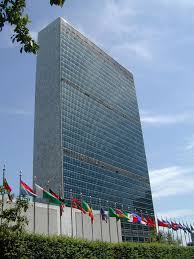On 29 September 2016, the European Union (EU) and United Nations Office on Drugs and Crime (UNODC) cosponsored a follow-up event to the High-Level Plenary Meeting of the General Assembly on Addressing Large Movements of Refugees and Migrants.
The opening remarks were given by H.E. Mr. João Vale de Almeida, Ambassador, Head of the Delegation of the European Union to the United Nations in New York and by H.E. Ms. Lourdes Ortiz Yparraguirre, Permanent Representative of the Philippines to the United Nations in New York
The panelists were Dr. Myria Vassiliadou, EU Anti-Trafficking Coordinator, European Commission; Mr. John Brandolino, Director, Division for Treaty Affairs, UNODC; Dr. Kari Johnstone, Principal Deputy Director, Office to Monitor and Combat Trafficking in Persons of the US State Department; and Ms. Alyse Nelson, Vital Voices Global Partnership. Ms. Simone Monasebian, Director, UNODC NY Office, served as moderator.
I was particularly struck by how the speakers treated mainstreaming the problem, the relationship of the problem to the 17 Sustainable Development Goals (SDGs), and the involvement of survivors going forward as survivor advocates and survivor leaders, especially in an NGO context.
Much attention revolved around the New York Declaration for Refugees and Migrants. The declaration offers the following two core messages: a desire to protect and save lives and a call to action to do so. Indeed, beyond commitments to address current and future challenges, the New York Declaration also contains the following concrete plans for how to build on these commitments:
- Negotiate a comprehensive global compact of common principles and approaches for safe, orderly, and regular migration to be adopted in 2018.
- Develop guidelines on the treatment of migrants in vulnerable situations, particularly important for children.
- Adopt a global compact on refugees in 2018 to share equitably the burden and responsibility for hosting and supporting refugees.
Additional resources treating migrants and refugees include the Migration Law Database and 2015 UN data on international migrant stock.
